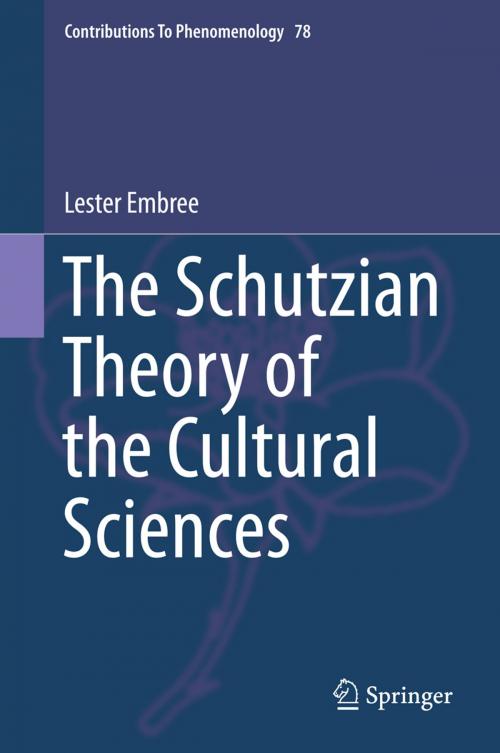The Schutzian Theory of the Cultural Sciences
Nonfiction, Religion & Spirituality, Philosophy, Phenomenology, Social & Cultural Studies, Social Science, Sociology| Author: | Lester Embree | ISBN: | 9783319136530 |
| Publisher: | Springer International Publishing | Publication: | April 22, 2015 |
| Imprint: | Springer | Language: | English |
| Author: | Lester Embree |
| ISBN: | 9783319136530 |
| Publisher: | Springer International Publishing |
| Publication: | April 22, 2015 |
| Imprint: | Springer |
| Language: | English |
This work is devoted to developing as well as expounding the theory of the cultural sciences of the philosopher Alfred Schutz (1899-1959). Drawing on all of Schutz’s seven volumes in English, the book shows how his philosophical theory consists of the reflective clarifications of the disciplinary definitions, basic concepts, and distinctive methods of particular cultural sciences as well as their species and genus. The book first expounds Schutz’s own theories of economics, jurisprudence, political science, sociology, and psychology. It then extends his approach to other disciplines, offering new theories of archaeology, ethnology, and psychotherapy in his spirit in order to stimulate the development of Schutzian theories in these and other disciplines. The second part of the book contains complementary philosophical chapters devoted to culture, groups, ideal types, interdisciplinarity, meaning, relevance, social tension, and verification.
This work is devoted to developing as well as expounding the theory of the cultural sciences of the philosopher Alfred Schutz (1899-1959). Drawing on all of Schutz’s seven volumes in English, the book shows how his philosophical theory consists of the reflective clarifications of the disciplinary definitions, basic concepts, and distinctive methods of particular cultural sciences as well as their species and genus. The book first expounds Schutz’s own theories of economics, jurisprudence, political science, sociology, and psychology. It then extends his approach to other disciplines, offering new theories of archaeology, ethnology, and psychotherapy in his spirit in order to stimulate the development of Schutzian theories in these and other disciplines. The second part of the book contains complementary philosophical chapters devoted to culture, groups, ideal types, interdisciplinarity, meaning, relevance, social tension, and verification.















